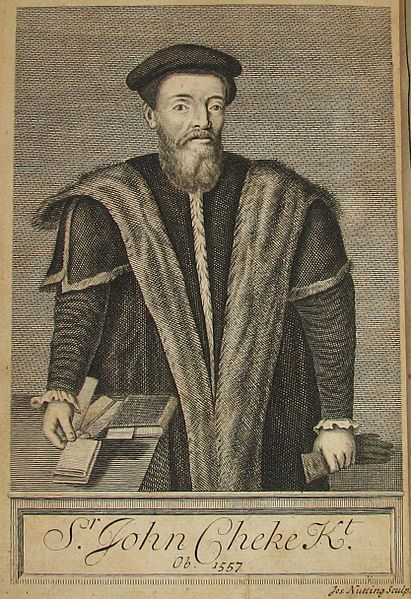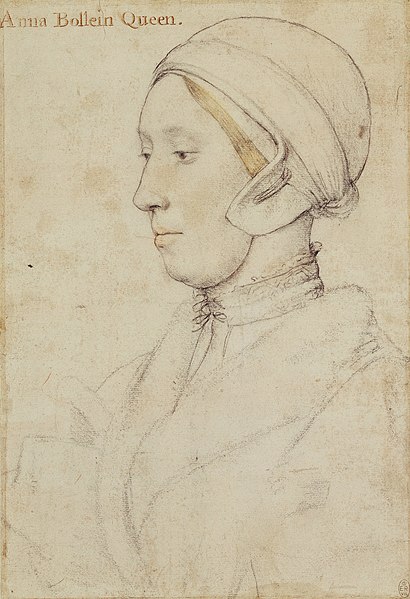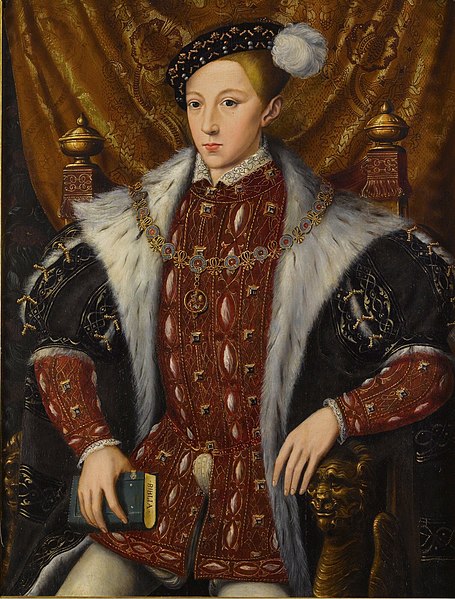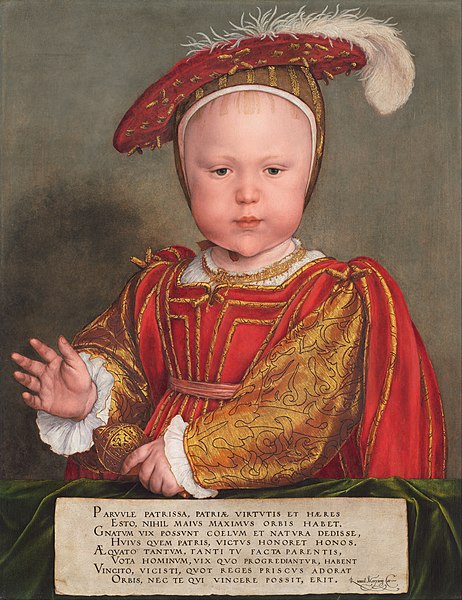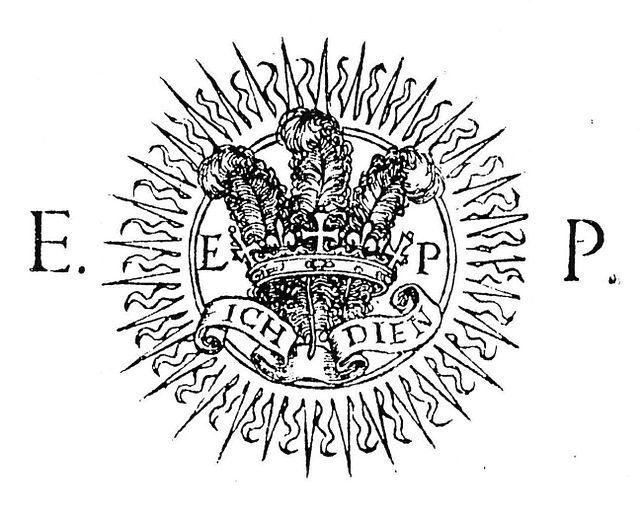Sir John Cheke was an English classical scholar and statesman. One of the foremost teachers of his age, and the first Regius Professor of Greek at the University of Cambridge, he played a great part in the revival of Greek learning in England. He was tutor to Prince Edward, the future King Edward VI, and also sometimes to Princess Elizabeth. Of strongly Reformist sympathy in religious affairs, his public career as provost of King's College, Cambridge, Member of Parliament and briefly as Secretary of State during King Edward's reign was brought to a close by the accession of Queen Mary in 1553. He went into voluntary exile abroad, at first under royal licence. He was captured and imprisoned in 1556, and recanted his faith to avoid death by burning. He died not long afterward, reportedly regretting his decision.
Portrait from the biography The Life of the Learned Sir John Cheke, Kt (1705) by John Strype
Mottistone Manor, the Cheke family seat on the Isle of Wight
John Cheke inscribed the names on a famous series of portraits by Hans Holbein the Younger.
King Edward VI by William Scrots, Royal Collection, Windsor
Edward VI was King of England and Ireland from 28 January 1547 until his death in 1553. He was crowned on 20 February 1547 at the age of nine. The only surviving son of Henry VIII by his third wife, Jane Seymour, Edward was the first English monarch to be raised as a Protestant. During his reign, the realm was governed by a regency council because Edward never reached maturity. The council was first led by his uncle Edward Seymour, Duke of Somerset (1547–1549), and then by John Dudley, Duke of Northumberland (1550–1553).
Portrait by William Scrots, c. 1550
Prince Edward in 1538, by Hans Holbein the Younger. He holds a golden rattle that resembles a sceptre; and the Latin inscription urges him to equal or surpass his father.
Edward as Prince of Wales, 1546. He wears the Prince of Wales's feathers and crown on the pendant jewel. Attributed to William Scrots. Royal Collection, Windsor Castle
The badge of Prince Edward, from John Leland's Genethliacon illustrissimi Eaduerdi principis Cambriae (1543)

